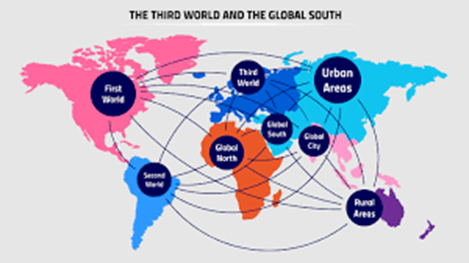PRESIDENT BIDEN CONTINUES
TO ARTICULATE DELUSIONS OF EMPIRE
Friday, October 20,
2023
American
leadership is what holds the world together. American alliances are what keep
us, America, safe. American values are what make us a partner that other nations
want to work with. To put all that at risk if we walk away from Ukraine, if we
turn our backs on Israel, it’s just not worth it…We are, as my friend Madeleine
Albright said, the indispensable nation. (Joe Biden, New York Times, October 19, 2023).
America’s
destiny required the U.S. “…to set the world its example of right and honor…We
cannot retreat from any soil where providence has unfurled our banner. It is
ours to save that soil, for liberty, and civilization….It is elemental...it is
racial. God has not been preparing the English-speaking and teutonic peoples
for a thousand years for nothing but vain and idle self-contemplation and
self-admiration. No! He has made us the master organizers of the world to
establish system where chaos reigns. He has given us the spirit of progress to
overwhelm the forces of reaction throughout the earth.” Senator Albert
Beveridge, Indiana, Congressional Record, 56 Congress, I Session, pp.704-712,
1898).
********************************************************
DELUSIONS AND UNITED STATES FOREIGN POLICY; FANTASIES CONTINUE
April 4, 2022, (reprinted in Portside)
Harry Targ, Stephen David
The brutal
war in Ukraine continues. Russia attacks targets in various parts of the
country, mostly in the South and East. Ukrainians and Russian soldiers die.
Millions flee the violence as the
physical landscape of cities and towns are destroyed. And neither
Russia, Ukraine, or NATO/the United States appear to engage in any serious
negotiations to end the violence.
Meanwhile
military spending in the United States and Europe increase at the expense of
desperately needed social programs and transformations from economies based on
fossil fuels. Presumably the Russian military/industrial complex (and perhaps
the Ukrainian military establishment) experiences boosts in resources and
legitimacy as is occurring in the west. And on all sides the mass media and cultural
and educational institutions spin narratives about the righteousness, glory,
and the efficacy of policy of the country from which the narratives are
produced.
Spokespersons from the United States government and the US corporate media particularly have produced and disseminated stories about aspects of the Ukraine war that together constitute a series of interconnected delusions about the context and causes of the war in Ukraine; the US/NATO response; the deleterious impacts of the war on the Russian invaders; and, most importantly, the immediate and long-term impacts of the war on international affairs. A delusion is "an idiosyncratic belief or impression that is firmly maintained despite being contradicted by what is generally accepted as reality or rational argument."
If one goes beyond the US/Western corporate media and if one gives serious thought to the historical logic of such narratives it would be clear that core premises of US/NATO policies are delusional.
For example,
there are at least seven kinds of delusions that are broadly accepted and/or
articulated by the US government and the corporate media.
Delusion number one is that the United States can reproduce the coalition of hegemonic forces that existed after World War 2. It is clear that the US Cold War international system cannot be replicated. After World War 2, the United States, the overwhelmingly hegemonic economic and military power, institutionalized a world order based upon economics (the Bretton Woods system, the Marshall Plan, the subsequent development of the European Economic Community and the European Union), military dominance (from the construction of the NATO alliance to a worldwide network of alliances, bilateral treaties, and military bases), and an ideology (the “free world versus communism” or in our own day “democracy” versus “authoritarianism”). While this hegemonic goal - economics, military and ideological - was never fully achieved it has been whittled away by multiple poles of economic power (particularly the rise of the Chinese economy), a declining ability of the United States to control the world militarily (as evidenced historically by military defeats from Korea, Vietnam, Afghanistan, Iraq, and even in the Western hemisphere), and growing global skepticism about what the United States means by “democracy.”
Delusion
number two suggests that the United States can remain
the global hegemon. Here again any number of writers, and more importantly
key leaders from countries in Europe, Asia, and throughout the Global South see
the United States as a declining power economically, militarily, and
politically. As the Ukraine crisis has unfolded many voices from the Global
South have evidenced indifference to what appears to be a “white people’s war”
that is being used to increase demands for fundamental changes in
global economics and politics. Many around the world see the conflicts in
Eastern Europe as a manifestation of the breakdown of North American and
European power and control of what goes on in their countries. The most
significant takeaway from the United Nations General Assembly resolution
condemning the Russian intervention in Ukraine is the fact that 35 countries
abstained in the vote; not only African and Asian countries but several from
the Western Hemisphere. The population of those countries constituted about
one-third of the population of the world. Not too long ago a loose coalition of
big powers, the BRICS, began dialoguing about making modest demands for changes
in power dynamics in global institutions and practice. Witnessing greater
underdevelopment in developing countries instead of the promise of development,
BRICS began charting a course not entirely dependent on the World Bank, IMF,
and World Trade Organizations. While the BRICS (Brazil, Russia, India, China,
and South Africa) talks have stalled, it is expected (particularly after
upcoming elections in Brazil) they will resume. Some modest redistribution of
decisioning power in major international institutions is in the air.
Delusion
number three is that the United States
can intimidate China. Since the 1980s, China has steered an economic course
that involves encouraging foreign investment, utilizing technologies derived
from these investments, and adopting an economic development model incorporating
advanced capitalism and appropriate state controls. Not only is China about to
surpass the United States in its gross domestic product but in its progress it
has lifted 700 million Chinese out of poverty. And in terms of China’s global
presence, it is establishing more attractive economic relations with nations
all across the globe. Through its Belt and Road Initiative for example, China
has already become the largest trading partner with the countries of Latin
America. In this context, media reports of US threats if China maintains
economic ties with Russia are matters of bluster and of little consequence.
Delusion
number four is that the countries of the
global south support the United States. Given the declining relative power
of the United States on the global stage, the rising economic influence of
China on the world stage, and the history of United States interference, (from
sanctions to soldiers) in the affairs of other countries and peoples, nations
of the Global South see the United States as the latest, perhaps last, imperial
power. As V J Prashad pointed out, “all war is criminal” - both ‘hot’ and
‘cold’ wars. Therefore, economic exploitation and political interference in
the Global South is increasingly viewed
with disdain and discomfort. Again, this disdain is suggested by the number of
countries that refused to condemn the Russian invasion of Ukraine in the recent
General Assembly vote. Yet despite such clear signs the US media continues to
praise US sanctions against Cuba, Venezuela, Nicaragua, Syria, Afghanistan,
Iran, and now Russia, without discussing the horrific impacts these sanctions
have on ordinary people in these countries. Nor does the media report that the
United States and the European Union currently have some kind of sanctions
imposed on 39 nations. Sanctions alone make it very unlikely that victimized
people from the Global South regard the United States with respect and
admiration.*And alternative forms of payment and paths for international trade
will be the logical outcome of weaponizing trade and the banking system.
Protesters demonstrate against police
brutality in Nairobi, Kenya, on June 8, 2020. The protest against police
brutality in Kenya was in support of the Black Lives Matter movement and in
response to the recent killing of George Floyd by police officers in
Minneapolis.
Delusion
number five is that the United States
remains the ‘indispensable nation,” the “last resort,” the model of democracy
and market economies for the world. For the reasons suggested above and the
demonstrable racism, violence, environmental disasters more frequently
associated with the United States itself (while admired for certain
achievements such as in education and science) most global citizens regard the
US as a failed state, surely one not to emulate. More recently the overbearing,
unfair, and restrictive moves against Chinese competitive strength in the form
of banning Huawei’s 5G technology and Tiktok compromises the notion of
free-market fairness and a just global economic world order. The “American
Dream” begins to morph into a hollow specter in the global context. Together
they mark an unmistakable decline.
Delusion
number six is that the United States
cannot learn from others: Cuba, China, peoples on the Africa continent and elsewhere.
It has historically been central to the consciousness of the hegemonic
actors in the world, the imperial powers, that they are and can be the
exemplars and teachers; and, the countries that have been conquered and/or been
impoverished have nothing to teach the powerful and only have to follow.
Meanwhile examples of alternative healthcare delivery systems, adaptations to
the natural environment, or forms of workplace democracy in less powerful
nations are ignored.
Cuban
doctors travel around the world to help cure pandemics.
And delusion
number seven suggests that global
hegemony can be maintained or achieved without major (indeed nuclear) war
and/or climate disaster. This is the most dangerous delusion because it suggests
that the powerful countries can proceed with their drive to dominate without
increasing the risk of nuclear war or speeding up the destruction of nature.
Therefore,
one project the peace and justice movement in the United States and hopefully
with peace and justice activists around the world can do is to challenge the
delusions articulated by American and European leaders and to challenge the
mythologies that are deeply embedded in the corporate media. And now, this
includes developing an historically grounded analysis of the Ukraine war; one
that denounces the initiation of the war but understands the history and
mythologies that undergird it. With such understandings we can only improve our
chances for a sounder basis for peace.
*Countries facing economic sanctions include: 1.
Afghanistan, 2. Belarus, 3. Bosnia and Herzegovina, 4. Burundi, 5. Central
African Republic, 6. China (PR), 7. Comoros 8. Crimea Region of Ukraine> 9.
Cuba, 10. Cyprus, 11. Democratic Republic of the Congo, 12. Guinea, 13. Guinea
Bissau, 14. Haiti, 15. Iran, 16. Iraq, 17. Kyrgyzstan, 18. Laos, 19. Lebanon,
20. Libya, 21. Mali 22. Mauritania 23. Moldova 24. Montenegro 25. Myanmar, 26.
Nicaragua, 27. North Korea - DPRK, 28. Palestinian Territories, 29. Russia, 30.
Rwanda, 31. Serbia 32. Somalia, 33. South Sudan, 34. Sudan, 35. Syria, 36.
Tunisia 37. Venezuela, 38. Yemen, 39. Zimbabwe. https://sanctionskill.org/wp-content/uploads/2020/03/39SanctionedCountries3.pdf
Harry Targ is a long-time peace activist,
writer, and teacher of courses on United States foreign policy. Stephen David is also a long-time peace
activist, cultural critic, and participant in the struggles against apartheid
in South Africa.









